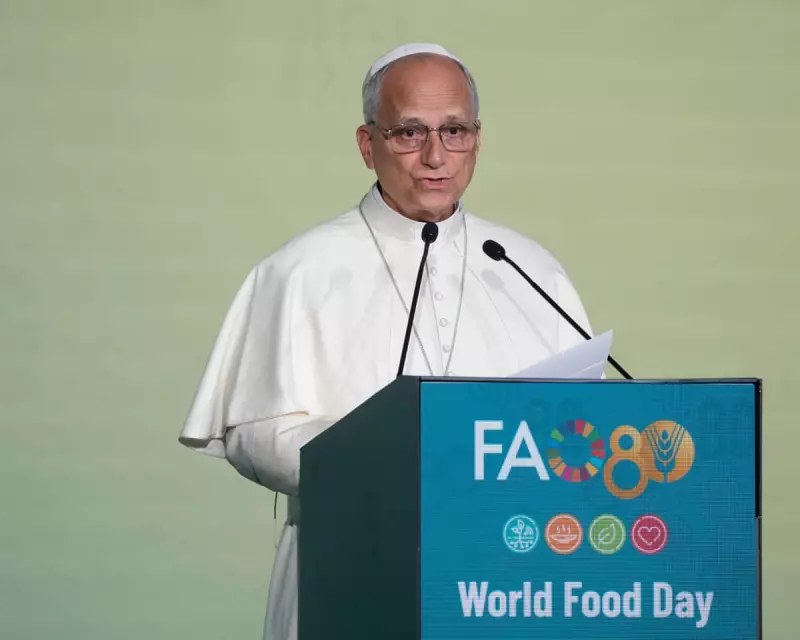
In what's being hailed as a historic moment for global cooperation, Pope Leo XIV has successfully orchestrated a landmark agreement among world leaders, committing to eradicate hunger within the next decade. The unprecedented summit at the Vatican has yielded concrete pledges that experts say could fundamentally reshape the fight against food insecurity.
A New Era of Global Solidarity
The atmosphere within the Vatican's hallowed halls was electric as leaders from nations across the economic spectrum put aside political differences to address what the Pontiff described as "one of humanity's greatest moral failures." Pope Leo's passionate appeal for urgent action resonated deeply, bridging ideological divides that have long stalled progress on global hunger initiatives.
Beyond Empty Promises: The Concrete Commitments
Unlike previous declarations that often amounted to little more than rhetoric, this agreement includes specific, measurable actions:
- Financial mechanisms to support agricultural development in food-insecure regions
- Technology sharing programmes to improve crop yields and distribution systems
- Emergency response protocols for regions facing acute food shortages
- Market reforms to ensure fair pricing and reduce food waste
The Pontiff's Personal Crusade
Since his election, Pope Leo has made combating hunger a cornerstone of his papacy, describing it as "a spiritual imperative that transcends politics and borders." His unique diplomatic approach, combining moral authority with pragmatic solutions, has been credited with breaking the deadlock that has hampered previous international efforts.
"We stand at a crossroads," the Pope declared during the summit's closing ceremony. "Either we continue with business as usual, accepting that millions will go hungry in a world of plenty, or we choose to write a different future—one where no child knows the pain of an empty stomach."
Expert Reactions: Cautious Optimism
Development organisations and hunger relief agencies have responded with cautious optimism. Many note that while the commitments represent significant progress, the true test will come in implementation and sustained political will.
What sets this initiative apart is the involvement of both donor and recipient nations in crafting solutions, creating a sense of shared ownership rather than traditional aid dynamics. The agreement also includes robust monitoring mechanisms to ensure accountability—a feature notably absent from previous hunger eradication attempts.
The Road to 2035
With the 2035 deadline now firmly established, the international community faces the formidable task of turning ambitious pledges into tangible results. The coming months will see working groups established to develop detailed implementation plans, with progress reviews scheduled every six months.
As world leaders departed the Vatican, there was a palpable sense that something significant had shifted in the global approach to ending hunger. Whether this historic agreement becomes the turning point advocates hope for remains to be seen, but for the first time in decades, there's genuine belief that a hunger-free world might be within reach.





